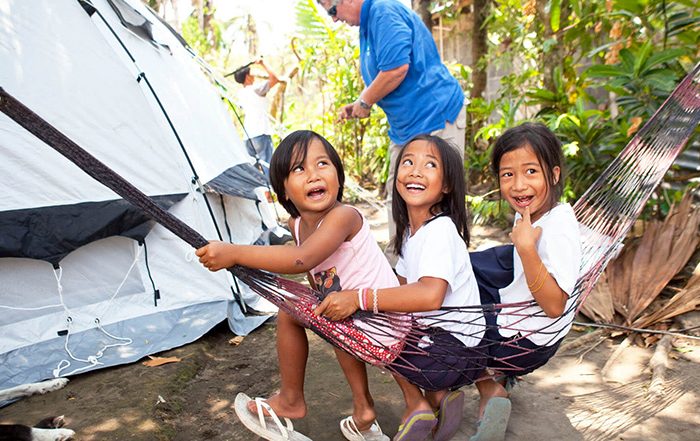
Contact
If you have a question about ShelterBox, the aid we provide, fundraising, volunteering, donating or supporting in any way, please do get in touch.
At ShelterBox, we are committed to creating a safe and respectful environment for anyone who has contact with us, including staff, volunteers, fundraisers, supporters, members of the public and members of the affected communities we work with or support.
ShelterBox has a zero-tolerance policy for exploitation and abuse. We believe that every person we interact with has a fundamental right to be protected from any form of harm, neglect, harassment, or exploitation by ShelterBox staff, volunteers, partners, or other ShelterBox representatives.
ShelterBox commits to addressing safeguarding throughout its work, through the three pillars of prevention, reporting and response.
How to report a concernWe recognise that there are unequal power dynamics across the organisation and in relation to those we serve, and that we face an inherent risk of some individuals exploiting their position of power for personal gain. We therefore expect the highest degree of ethical conduct amongst all our employees, volunteers and other ShelterBox representatives.
All Trustees, staff and deployable volunteers are required to sign our Code of Conduct 2.0 which sets out our expected standards of behaviour, and details what will happen if these standards are not met.
ShelterBox Trustees, staff and volunteers are also required to comply with our Safeguarding Policy 2.0.
All of our staff are subject to a detailed recruitment process with reference checking. In addition, to be able to distribute aid and work in disaster areas with ShelterBox, our international response team volunteers go through a rigorous recruitment process and all deployable staff and volunteers are required to complete a training process consisting of a residential course including thorough safeguarding training.
All international programmes staff and response team volunteers who work to distribute ShelterBox aid in disaster areas have Enhanced DBS checks (or equivalent). These are refreshed every 3 years.
As noted above, all staff and our response team volunteers who travel with us to disaster areas sign our:
We take a number of steps to ensure that our staff and response team volunteers are fully supported and able to comply with our key policies at all times. There are Safeguarding procedures designed to ensure that Safeguarding is integrated into our projects.
We ensure all staff receive regular Safeguarding training.
We have expanded our network of staff with specialist knowledge and training and have designated Safeguarding Focal Points.
We assess the Safeguarding capabilities of our partners. Where necessary, we support our partners to develop stronger safeguarding knowledge, understanding and capacity.
All reports are strictly confidential, and you can always choose to remain anonymous.
If you are worried about reporting to the safeguarding advisor and team, complaint can be made to a member of our Executive Team at [email protected]
If you prefer, you can also report your concerns to our independent whistleblowing service, Safecall.
It is the duty and the responsibility of all ShelterBox Representatives to report any suspicions or incidences of inappropriate behaviour.
Receiving feedback and responding to Safeguarding reports is an important part of ensuring ShelterBox’s accountability. The effective handling of reports, and the learning opportunity from dealing with them, is important to the success of ShelterBox. We consider that ensuring our stakeholders can hold us to account will improve the quality of our work in all areas.
On receiving a report we take the following steps:
Initial review – a team will be formed to review the report and determine whether an investigation is necessary. Support will be offered to the survivor.
Investigation – if an investigation is required there will be a survivor-centred approach. It is possible that ShelterBox will need to report the investigation to the Charity Commission, relevant authorities and certain major donors.
The investigation will be confidential and information shared on a need to know basis.
Reporting back – the person making the original report will be kept informed at all stages of the process. They will receive an acknowledgement of the original safeguarding report, will be informed of the next steps after the initial review, and will receive the outcome of any investigation.
Learning – ShelterBox is committed to continuous learning from any incidents and cases will be reviewed to consider, for example, whether any changes are needed to operational practice or procedures or additional training is required.
How to report a concern